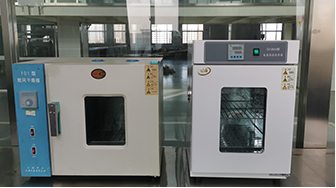-
 Afrikaans
Afrikaans -
 Albanian
Albanian -
 Amharic
Amharic -
 Arabic
Arabic -
 Armenian
Armenian -
 Azerbaijani
Azerbaijani -
 Basque
Basque -
 Belarusian
Belarusian -
 Bengali
Bengali -
 Bosnian
Bosnian -
 Bulgarian
Bulgarian -
 Catalan
Catalan -
 Cebuano
Cebuano -
 Corsican
Corsican -
 Croatian
Croatian -
 Czech
Czech -
 Danish
Danish -
 Dutch
Dutch -
 English
English -
 Esperanto
Esperanto -
 Estonian
Estonian -
 Finnish
Finnish -
 French
French -
 Frisian
Frisian -
 Galician
Galician -
 Georgian
Georgian -
 German
German -
 Greek
Greek -
 Gujarati
Gujarati -
 Haitian Creole
Haitian Creole -
 hausa
hausa -
 hawaiian
hawaiian -
 Hebrew
Hebrew -
 Hindi
Hindi -
 Miao
Miao -
 Hungarian
Hungarian -
 Icelandic
Icelandic -
 igbo
igbo -
 Indonesian
Indonesian -
 irish
irish -
 Italian
Italian -
 Japanese
Japanese -
 Javanese
Javanese -
 Kannada
Kannada -
 kazakh
kazakh -
 Khmer
Khmer -
 Rwandese
Rwandese -
 Korean
Korean -
 Kurdish
Kurdish -
 Kyrgyz
Kyrgyz -
 Lao
Lao -
 Latin
Latin -
 Latvian
Latvian -
 Lithuanian
Lithuanian -
 Luxembourgish
Luxembourgish -
 Macedonian
Macedonian -
 Malgashi
Malgashi -
 Malay
Malay -
 Malayalam
Malayalam -
 Maltese
Maltese -
 Maori
Maori -
 Marathi
Marathi -
 Mongolian
Mongolian -
 Myanmar
Myanmar -
 Nepali
Nepali -
 Norwegian
Norwegian -
 Norwegian
Norwegian -
 Occitan
Occitan -
 Pashto
Pashto -
 Persian
Persian -
 Polish
Polish -
 Portuguese
Portuguese -
 Punjabi
Punjabi -
 Romanian
Romanian -
 Russian
Russian -
 Samoan
Samoan -
 Scottish Gaelic
Scottish Gaelic -
 Serbian
Serbian -
 Sesotho
Sesotho -
 Shona
Shona -
 Sindhi
Sindhi -
 Sinhala
Sinhala -
 Slovak
Slovak -
 Slovenian
Slovenian -
 Somali
Somali -
 Spanish
Spanish -
 Sundanese
Sundanese -
 Swahili
Swahili -
 Swedish
Swedish -
 Tagalog
Tagalog -
 Tajik
Tajik -
 Tamil
Tamil -
 Tatar
Tatar -
 Telugu
Telugu -
 Thai
Thai -
 Turkish
Turkish -
 Turkmen
Turkmen -
 Ukrainian
Ukrainian -
 Urdu
Urdu -
 Uighur
Uighur -
 Uzbek
Uzbek -
 Vietnamese
Vietnamese -
 Welsh
Welsh -
 Bantu
Bantu -
 Yiddish
Yiddish -
 Yoruba
Yoruba -
 Zulu
Zulu
Aug . 06, 2024 06:25 Back to list
High-Quality Roasted Sunflower Seeds in Shell from Our State-of-the-Art Production Facility
Roasting Sunflower Seeds in Shell A Guide to the Process and Its Benefits
Sunflower seeds are a popular snack enjoyed by many around the world, prized for their delightful crunch and nutty flavor. Among the various preparations of sunflower seeds, roasting them in their shells is a favored method that enhances their taste while offering numerous health benefits. This article explores the process of roasting sunflower seeds in shell, delves into its advantages, and discusses the industrial aspects of this practice.
Roasting sunflower seeds involves subjecting the seeds, still encased in their hard shells, to heat, which transforms their raw flavor into a rich, toasted delight. The process can be as simple as using a home oven or as complex as employing large-scale industrial roasting equipment in a factory setting. The initial step in the roasting process is to clean the seeds thoroughly to remove any dirt or impurities, as these can affect the flavor and quality of the final product.
Once cleaned, the seeds are spread out on perforated trays to ensure even heat distribution, which is crucial for achieving a uniform roast. The roasting temperature typically ranges from 300°F to 350°F (approximately 150°C to 175°C), and the seeds are roasted for about 30 to 40 minutes, depending on the desired level of toasting. Throughout the roasting process, it is essential to stir the seeds periodically to avoid uneven cooking and to prevent burning.
One of the significant advantages of roasting sunflower seeds in their shells is the enhancement of flavor. The roasting process caramelizes the natural oils within the seeds, intensifying their nutty profile and adding a delightful crunch. The high heat also transforms the chemical makeup of the seeds, resulting in a toasted aroma that is simply irresistible. Roasted sunflower seeds are often sprinkled with salt or other seasonings, making them a versatile snack suitable for various taste preferences.
roast sunflower seeds in shell factory

Moreover, consuming sunflower seeds in their shells offers unique health benefits. Sunflower seeds are an excellent source of vitamin E, magnesium, and selenium, contributing to overall health. The shells, also known as hulls, provide fiber, which aids digestion and promotes a feeling of fullness, making roasted sunflower seeds a satisfying snack option.
From an industrial perspective, the roasting of sunflower seeds in shell has seen significant advancements in technology. Modern factories utilize state-of-the-art equipment that allows for precise control over the roasting process, ensuring consistency in flavor and quality. These facilities often implement quality control measures to monitor the roasting time and temperature, which helps maintain product integrity and safety.
In recent years, there has been a growing trend toward healthier snacking options, and roasted sunflower seeds fit perfectly into this category. As consumers become more health-conscious, the demand for roasted seeds has increased, prompting factories to ramp up production. Many manufacturers have also explored innovative flavors and seasonings, broadening the appeal of this nutritious snack.
In conclusion, roasting sunflower seeds in their shells is a time-honored method that enhances flavor and provides health benefits. Whether enjoyed as a simple snack or used as a crunchy topping for salads and dishes, roasted sunflower seeds have secured their place in the hearts of consumers worldwide. As the industry continues to evolve, one can expect even more exciting developments in the realm of sunflower seed roasting, making this humble seed a staple in many homes and markets around the globe.
-
Buy Bulk Sunflower Seeds Exporter: Premium Quality, Competitive Price
NewsJul.30,2025
-
Premium Macadamia Nuts - Fresh, Crunchy & Healthy Snack Choice
NewsJul.30,2025
-
Premium Biscuits Packaging – Elegant, Durable & Customizable Solutions
NewsJul.29,2025
-
Top Banana Flavor Sunflower Seeds Exporter - Factory Direct Supply
NewsJul.29,2025
-
Premium Snack Dates - Healthy, Natural & Delicious Treats
NewsJul.29,2025
-
Premium Peanuts - Fresh, Nutritious & Delicious Snacks for All
NewsJul.28,2025
